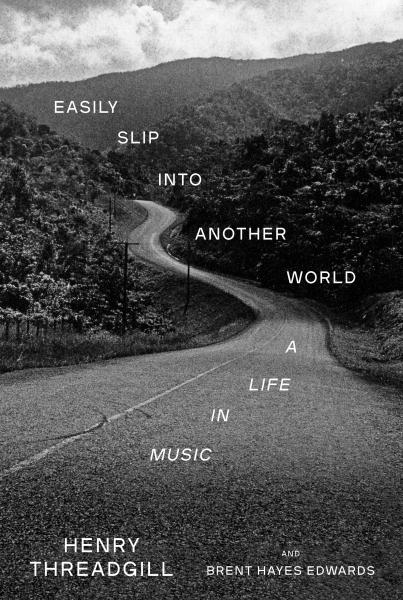SEARCH
SEARCH
|
For general questions about reservations or event details, please contact the DC Public Library location you are planning to visit. For those in need of disability services related to event registration or room reservation, please reach out to the Center for Accessibility at 202-727-2142 or DCPLaccess@dc.gov. |
Join us for an exceptional Jazz Talk and Concert featuring jazz icon Henry Threadgill as he discusses his new book "Easily Slip into Another World" at the historic MLK Jr. Memorial Library.
This event is part of our celebration of Black History Month, this year focusing on the arts. We are thrilled to host a conversation around Henry Threadgill's latest work, "Easily Slip Into Another World: A Life In Music". The program will start with a reading of selections from the book by the author, followed by a conversation with coauthor, and jazz historian Brent Hayes Edwards. This conversation will be followed by a live jazz performance. Don't miss this unique opportunity to delve into the world of jazz music.
This program sponsored by The DC Public Library Foundation, and the Anacostia Community Museum. 50 copies of Easily Slip Into Another World will be donated to select audience members by the DC Public Library Foundation.

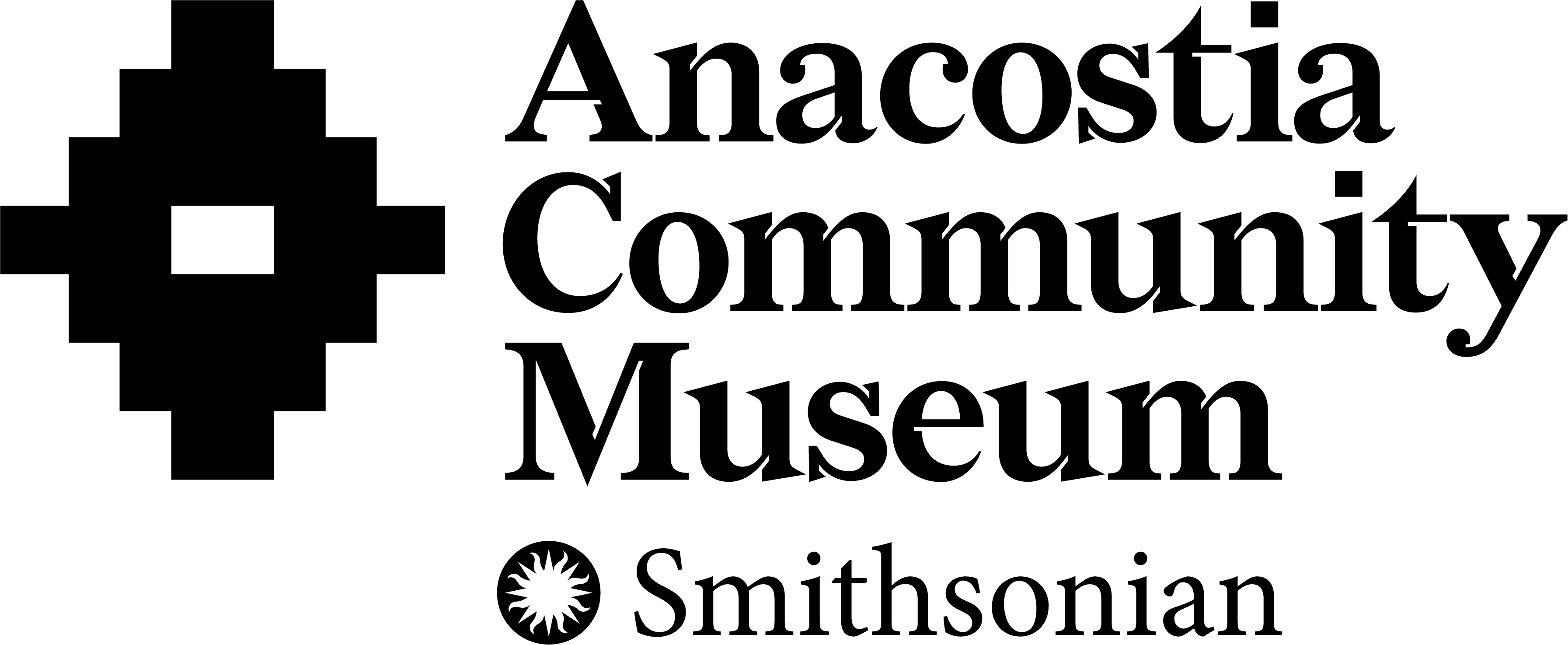
For reasonable accommodations, please contact the Center for Accessibility at 202-727-2142 or DCPLaccess@dc.gov. For ASL or tactile interpretation, please allow at least seven (7) days notice.
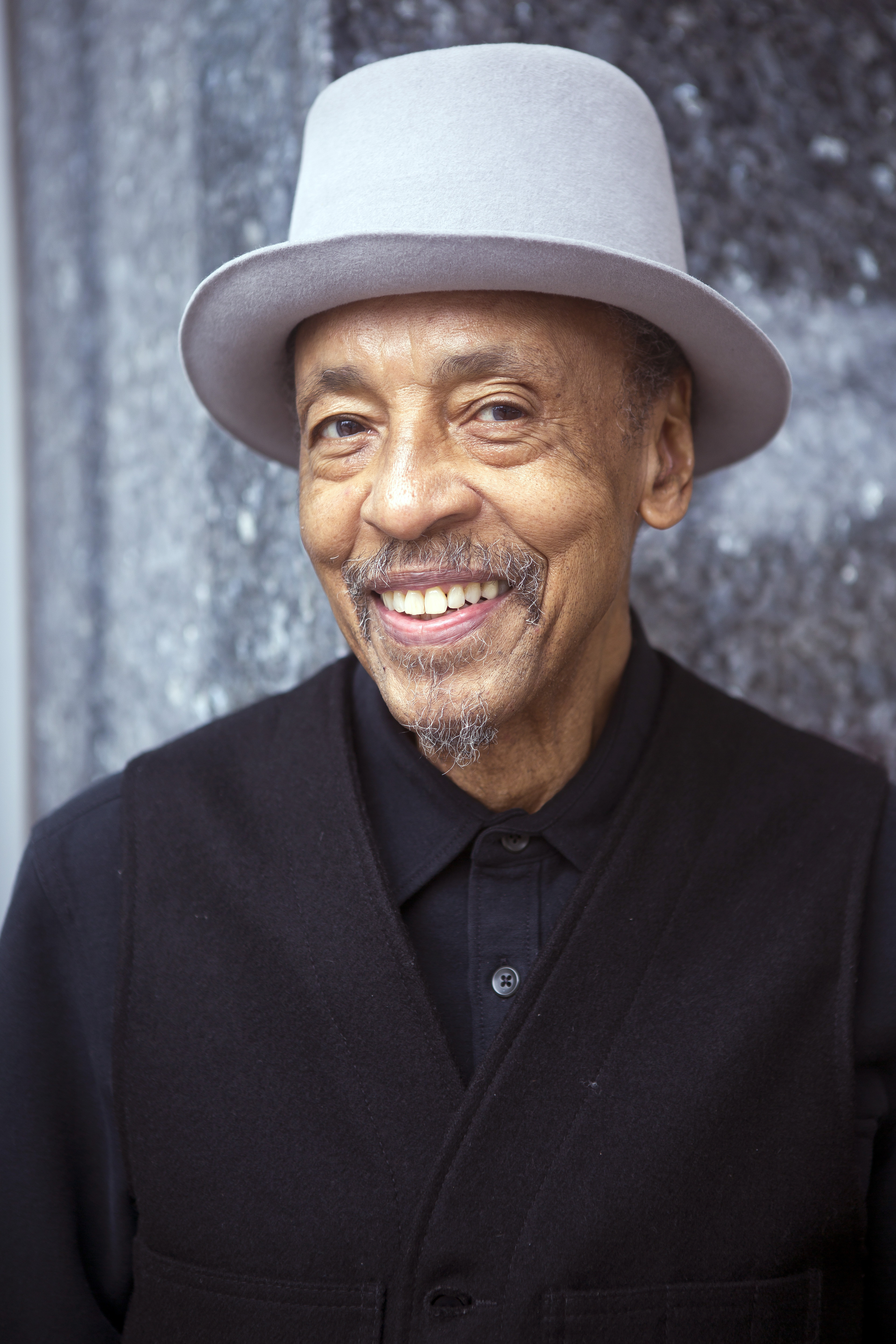
Hailed by the New York Times as “perhaps the most important jazz composer of his generation,” Henry Threadgill has been celebrated for over forty years as one of the most original, forward-thinking composers and multi-instrumentalists in American music. His four-movement work, In for a Penny, In for a Pound, received the Pulitzer Prize for Music in 2016, one of only three jazz compositions to ever be so honored.
A Chicago native, Mr. Threadgill studied at the city’s American Conservatory of Music, majoring in composition, piano, and flute. A Vietnam veteran, he performed with the U.S. Army Concert Band. Mr. Threadgill is an early member of the Association for the Advancement of Creative Musicians (AACM), dedicated to the performance of its members’ original music. Mr. Threadgill has also received a Guggenheim Fellowship, the Aaron Copland Award, and the Doris Duke Impact Award. Down Beat magazine’s International Jazz Critics Poll has five times distinguished him with its Best Composer Award. The Jazz Journalists Association honored him with its 2002 Composer of the Year Award and its Lifetime Achievement Award. Mr. Threadgill has released over thirty critically acclaimed albums.
Mr. Threadgill’s orchestral pieces, 1987’s Run Silent, Run Deep, Run Loud, Run and 1993’s Mix for Orchestra premiered at the Brooklyn Academy of Music. His many commissions include Mordine & Co. Dance Theater, Carnegie Hall, the New York Shakespeare Festival, Talujon Percussion Ensemble, Junge Philharmonic Salzburg Orchestra, the Biennale di Venezia, and the American Composers Orchestra. He has been composer in residence at University of California-Berkeley and the Atlantic Center of the Arts. Through the years, Mr. Threadgill has led, performed, and recorded with numerous groups, most recently Zooid and the Double Up Ensemble. In 2015, a two-day festival at New York’s Harlem Stage celebrated works spanning Mr. Threadgill’s career performed and reinterpreted by an all-star collection of musicians.
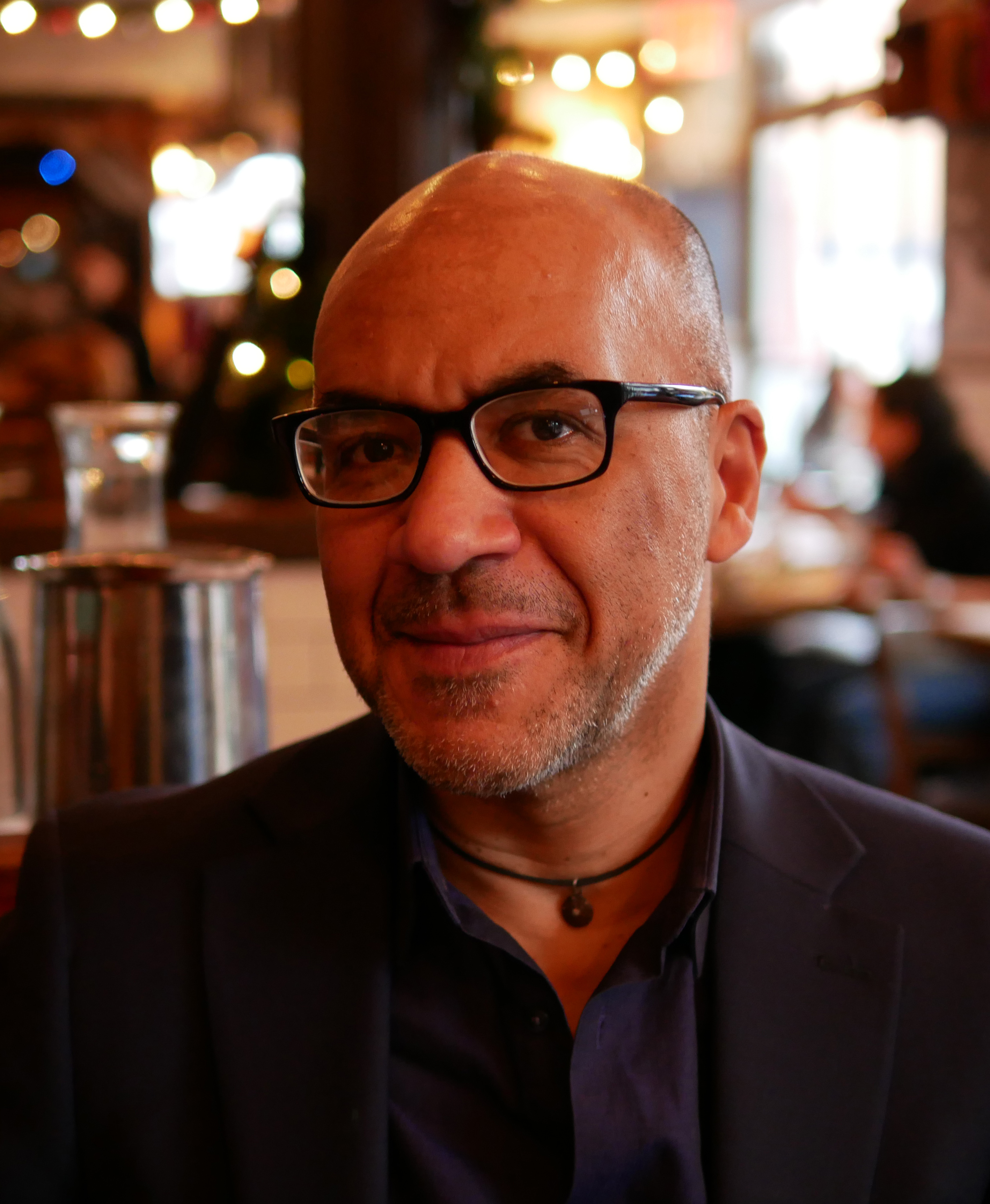
Brent Hayes Edwards is “that rare academic whose work demands attention outside of experts in the field, without sacrificing tone or complexity,” the Nation noted in a review of Epistrophies: Jazz and the Literary Imagination (Harvard University Press, 2017).
The book’s title nods to Thelonious Monk’s 1941 composition “Epistrophy,” itself in turn a reference to epistrophe, a rhetorical device in which the same words are repeated at the end of successive phrases for emphasis and rhythm. Epistrophies takes that heuristic (a musical composition finding a structural model in literary form) as a starting point for a probing critical meditation on the relationship between jazz and literature, a subject which has long occupied Edwards, a wide-ranging and accomplished scholar known for his interdisciplinary writing on African diasporic literature, music, black intellectual history, interwar Paris, cultural theory, experimental poetics, and translation studies.
Edwards is also the author of The Practice of Diaspora: Literature, Translation, and the Rise of Black Internationalism (Harvard, 2003), which studies the links between intellectuals in New York and their Francophone counterparts in Paris during the Harlem Renaissance and the early years of Négritude. The book was awarded the John Hope Franklin Prize of the American Studies Association and the Gilbert Chinard Prize of the Society for French Historical Studies, and named a runner-up for the James Russell Lowell Prize of the Modern Language Association. Other recent projects include editing a scholarly edition of Amiable with Big Teeth (Penguin Classics, 2017), a long-lost novel by Harlem Renaissance writer Claude McKay; and translating a new edition of Michel Leiris’s 1934 classic of “surrealist ethnography,” Phantom Africa (Seagull Books, 2017), for which he was awarded a 2012 PEN/Heim Translation Grant.
Edwards was born in Chicago and grew up in Illinois, Michigan, Massachusetts, Belgium, and Washington, D.C. He earned a B.A. in Literature from Yale and a Ph.D. in English and Comparative Literature from Columbia. He taught at Rutgers before returning to Columbia in 2007 to take up his current position as Professor of English and Comparative Literature.
Edwards is at work on three different projects. “Black Radicalism and the Archive” considers the collecting activities of black artists and intellectuals including Arturo Schomburg, Hubert Harrison, Ada “Bricktop” Smith, Alexander Gumby, and C. L. R. James. Edwards describes the book, an early version of which he presented as Du Bois Lectures at Harvard in 2015, as an exploration of the larger question of “what it means to consider archival practice – a commitment to historical documentation and preservation – as an integral element of political radicalism.”
Edwards is also working on a book-length cultural history of the downtown New York “loft jazz” scene in New York in the 1970s, when musicians such as Ornette Coleman and Sam Rivers opened their own performance spaces in SoHo. And finally, he is writing a study called “Art of the Lecture,” a book project he began during his tenure as a 2015 Guggenheim Fellow.
Edwards began his career in the dance world, and from 1992 to 1996 he co-directed, choreographed, and danced in the collaborative company 8 Lives Dance Collective, which performed at Jacob’s Pillow and the Merce Cunningham Studio, among other venues. He currently resides in Harlem with his family.
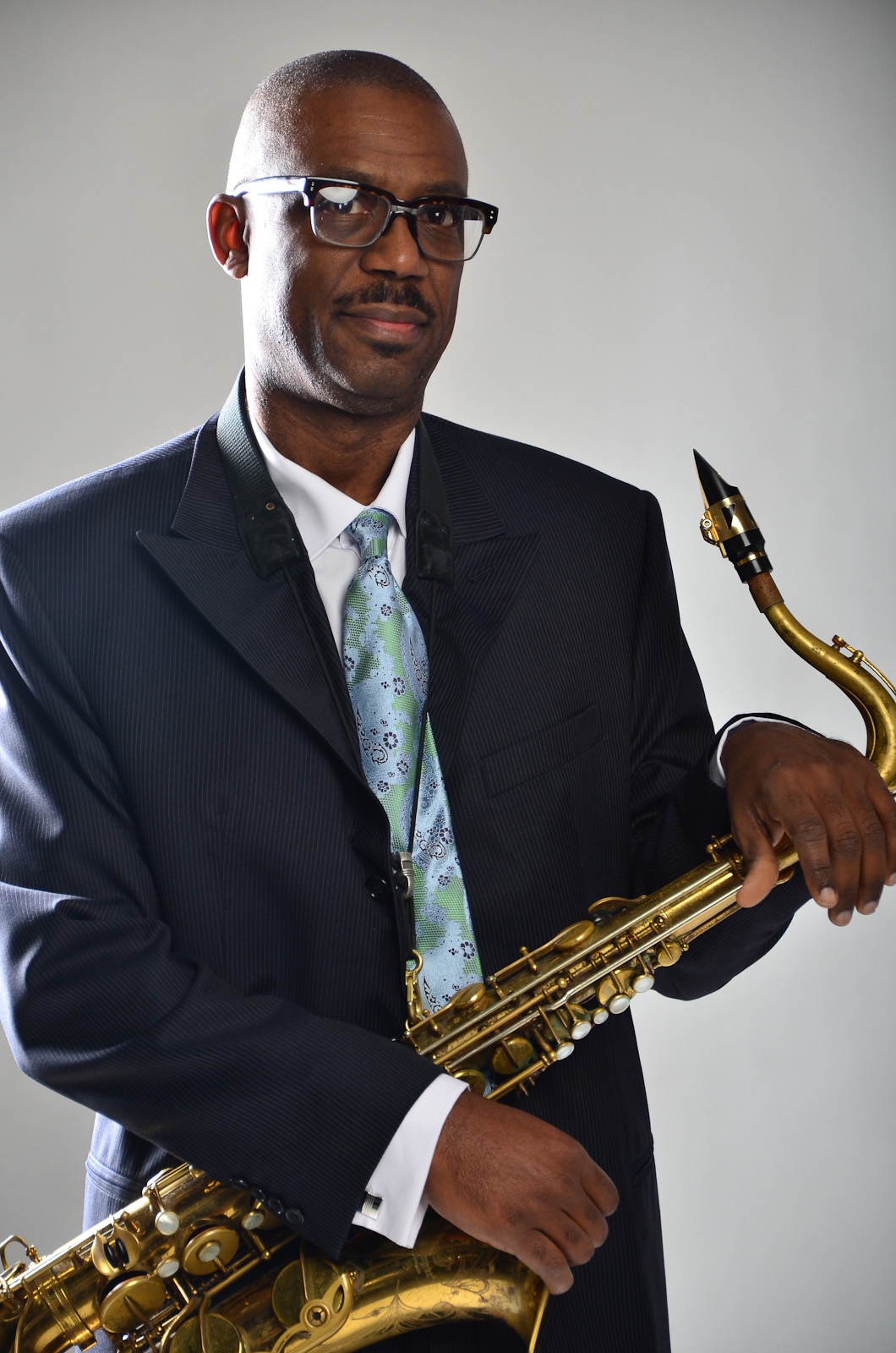 Paul Carr
Paul CarrHouston native, Paul Carr, known as the Real Jazz Whisperer, is a saxophonist, educator, and curator.
He has been recognized by:
❖ Howard University, his alma-mater, as a Benny Golson Jazz Master in 2014,
❖ Montgomery County Maryland as teacher of year in 2015 and,
❖ The Jazz Journalist Association as a Jazz Hero in 2019.
Saxophonist
Paul has released 9 recordings, many of which reached the top 10 ranking on the Jazz Week chart. His most recent recording is Paul Carr Legacy Quartet, featuring the great Bassist Buster Williams, pianist Bruce Barth, and renown drummer Lewis Nash. Paul Carr has performed worldwide including South America, Europe, and the Middle East. He had the great honor of performing at many of President Clintons’ private events and for the late King Hussein and Queen Noir of Jordan at their residence in Aqaba, Jordan. He leads five band configurations: the Paul Carr Quartet that showcases Paul’s traditional jazz recordings; Paul Carr Legacy Quartet, featuring renown musicians that he admires; Paul Carr Collective, wherein Paul collaborates with various musicians to present member originals and covers arranged by the members; Carr-Keys, a collaboration with Paul Carr and Marshall Keys which melds traditional and contemporary jazz styles designed to expand audience appreciation for both styles; and finally the Mid-Atlantic Jazz Orchestra which celebrates the big band.
Curator
Paul established the Mid-Atlantic Jazz Festival (MAJF) in 2010 serving as its Executive and Artistic Director. The MAJF showcases national and regional talent and includes a huge jazz education component. The awe-inspiring Mid-Atlantic Jazz Festival is held every President’s Day weekend in Rockville, Maryland where over 3,000 attendees travel from across the nation. Paul also serves as consultant/advisor to the DC Jazz Festival, Silver Spring Jazz Festival and True-Blue Jazz Festival.
Educator
As founder of the Paul Carr Jazz Academy of Music, Paul has been a distinguished educator for children and young adults; many of whom have been admitted to and attend prestigious institutions such as Juilliard, Manhattan School of Music, and Berklee College of Music. Several of Paul’s private students are stars on the jazz scene today including Braxton Cook, Peter and William Anderson and Jason Marshall, to name a few. Paul also mentored, trumpeter and Director of Jazz Studies at Temple University, Terell Stafford and alto saxophonist Bruce Williams. Paul served as Professor and Jazz Band Director at Gettysburg College until 2021. He frequently serves as guest conductor and clinician at high school jazz band festivals in the Mid-Atlantic region from Virginia to Pennsylvania. Paul is currently writing a book to codify his teaching techniques, “The Theoryless Approach to Jazz Improvisation”. He presented the techniques and philosophies contained in the book at the Jazz Education Network (JEN) Conference in San Diego to a standing room only crowd and was subsequently asked to present to the students at Michigan State University.
AGE GROUP: | Adults |
EVENT TYPE: | Musical Performance | Black History Month | Author Talk |
